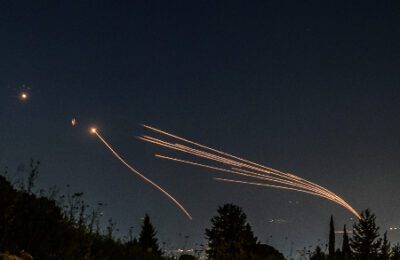I was intrigued. Immediately.
First, it was a reunion. I like reunions.
But I couldnt imagine what this one would be like.
Intrigued and more than intrigued.
Even though this reunion would not be for me.
Not for my family, my school, my neighborhood.
But what a reunion marking the 200th year. I mean, not a single one of the original group would be there!
Two hundred years ago was 1811, and in 1811 a certain Jew reached Jerusalem.
You never heard his name.
I never heard his name.
He was a nobody, right?
No, actually. Not at all if he had staying power.
He must have, since his great-great-great-great-great-grandson planned to be at the reunion.
Who else would be there?
His descendants, naturally.
As that great-great-great-great-great-grandson put it to me: If you wanted to bet on Jewish survival in 1811, you wouldnt bet on Europe.
We know what happened there.
Holocaust.
And you wouldnt bet on the USA.
We know what happened there.
Assimilation.
You would bet, oddly enough, on that harsh and abandoned yet spirit-laden corner of the Ottoman Empire: Palestine.
Not odd, really.
What could be odd about the center of the universe?
About the cynosure of 1,800 years of dreams and prayers?
So what if there were no shoe strings in that forgotten backwater of 1811.
No paved roads.
Neither industries nor farms.
Neither sanitation nor health care.
It was still the holy of holies.
And so, Abraham Shlomo Tzoref Solomon bet on the Land of Israel.
He arrived in Jerusalem on Hoshanah Rabbah in 1811.
He was ready to face the immense task of putting a small mark on the infinite task of rebuilding the holy land.
A small portion of his descendants gathered in Jerusalem last week for a family reunion, to mark his ascent to the Land of Israel, his aliyah.
The Jerusalem Theater in the Rechavia neighborhood of Jerusalem was filled.
I met cousins who I cannot even begin to describe or even figure out how many times removed they were from me, wrote the great-great-great-great-great-grandson, my cherished colleague Rabbi Ron Y. Eisenman of Passaic, New Jersey.
I cried when I heard many of the speeches and when I thought about my father of blessed memory who would have enjoyed being at the event.
I felt pride and joy as those members of the family who have become accomplished talmidei chachamim [Talmud scholars], rabbis and professionals were recognized.
All very nice.
Standard fare at reunions.
But then, this:
I felt a sense of thankfulness to Hashem that my family was not destroyed in the Holocaust or ravaged through assimilation.
That lonely, idealistic, spirit-laden, intelligent-betting soul of 1811, that originator of this reunion, was born in Keidan, Lithuania, in 1789, into a climate of opinion.
It was characterized loosely as the disciples of the Vilna Gaon.
What they thought.
What they did.
One by one, they made the trek to the Holy Land.
One by one, they reestablished the Ashkenazi Jewish community in the Holy Land.
Individually, they were inspired to love the Land of Israel by the legendary saint and scholar, the Vilna Gaon.
And so, at age 22, Abraham Shlomo Tzoref Solomon, with wife and small children, arrived in Jerusalem.
Two hundred years ago.
What about 200 years later?
The most meaningful part of the evening, wrote Rabbi Eisenman, was not the celebration of the past but the present.
As I sat in the theater, I was surrounded on both sides by my two sons and one of my daughters, who are all presently residing in the Holy City of Yerushalayim.
I realized at that moment that not only is the past so beautifully bright, the present and the future are even brighter.
OK.
You know it never goes that smoothly.
Not in Jewish history.
Including in Palestine.
Right no Holocaust.
Right virtually no assimilation.
But still.
Even though Solomon of 1811 built synagogues and hospitals . . .
Even though he helped settle the land . . .
Even though he was one of the reasons why the faithful city of Jerusalem began the 19th century with a minority of Jews and ended the century with a majority of Jews . . .
I thought about how he sacrificed his life so that others could live and learn in Yerushalayim.
Eventually he became known as the first victim of modern terrorism, as he was killed by an Arab.
Solomons bet on the future, shall we say, was imperfect. After all, prophecy has been stilled; he could not know the future. But how, then, may one say that the present and the future are even brighter?
One may say it because of that small portion of his descendants who came to the reunion.
Because Solomon did leave a mark on the infinite task of rebuilding the Land of Israel.
Try this:
Abraham Shlomo Tzoref Solomon has, in 2011, 25,000 descendants!
Can one person make a difference?
Solomon made 25,000 differences.
And 20,000 of his descendants still live in Israel.
One thousand of his descendants attended the reunion.
Think of that, the next time you hear some blood-curdling cry of hatred issuing from some wild-eyed enemy of Israel.
Thats what these enemies are up against.
People who dont just make a difference.
People who make 25,000 differences.
Copyright © 2011 by the Intermountain Jewish News
















